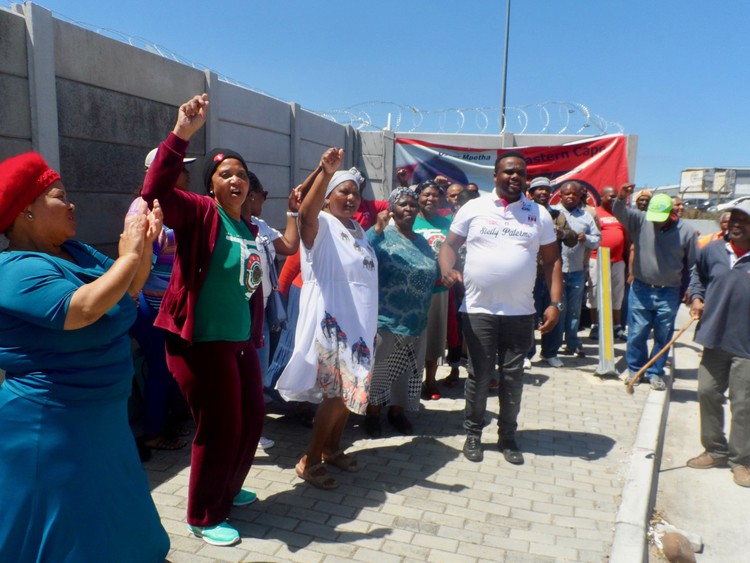Coke on strike
Workers at beverage company enter second week of strike
About 1,800 employees of Coca Cola Beverages South Africa have been on a protected strike for the past two weeks demanding an unconditional 7% wage increase and better working conditions.
Industrial action began on 12 October and affects the company’s operations in the Eastern Cape, Free State, Northern Cape, Limpopo and Mpumalanga.
The workers on strike are former employees of Coca Cola Fortune, which together with other entities, merged to form Coca Cola Beverages South Africa in May 2016.
Food and Allied Workers Union (FAWU) Eastern Cape provincial secretary Vukile Mangwana said, “With this strike, we originally demanded a 12% increase, but we backed down to 7%. The company is insisting on changing the shift system and this will disadvantage our members because they will lose the benefits they have already achieved. “
Mangwana said the lowest paid unionised worker earns R9,100 a month.
FAWU national general secretary Katishi Masemola said workers will be forced to work six-day shifts. Delivery truck drivers would have to work a 36-hour shift. He also said overtime pay of one and a half times for Saturdays, double pay Sundays and treble pay for public holidays “will disappear due to these shift systems”.
“Workers will see gains made over three decades of struggle being reversed by this restructuring programme,” said Masemola.
An employee on strike, who did not want to give her name and who works at the company’s depot in Harrower Road, Port Elizabeth, said: “I am fine with the 7% increase but the company is introducing a permanent night shift that will make it difficult for me to have time with my family.”
Wendy Thole-Muir, Head of Corporate Communication and Reputation for Coca Cola Beverages South Africa, said the company has a total of 7,500 employees.
“We will not retrench anybody. The dispute arose as the company and FAWU were unable to reach an agreement during the annual wage negotiations which commenced in July 2017. The matter was referred to the CCMA (Commission for Conciliation Mediation and Arbitration) last month and as a result FAWU was issued with a certificate for a protected strike.”
“While the union indicated its agreement to a 7% across the board wage increase backdated to 1 July, the parties were unable to agree on other matters,” she said.
Thole-Muir said, “Where we have introduced changes to the shift system, we have consulted with affected parties in advance and offered reasonable alternative positions to those who wished not to work a different shift.”
She said the company had contingency arrangements in place for production to continue unaffected.
© 2017 GroundUp. 
This article is licensed under a Creative Commons Attribution-NoDerivatives 4.0 International License.
You may republish this article, so long as you credit the authors and GroundUp, and do not change the text. Please include a link back to the original article.



